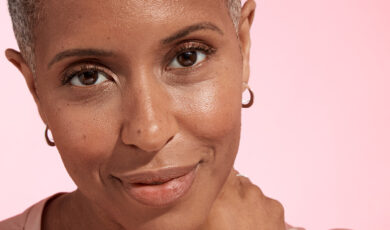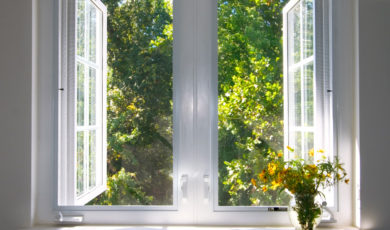Clean Sleep for Better Living
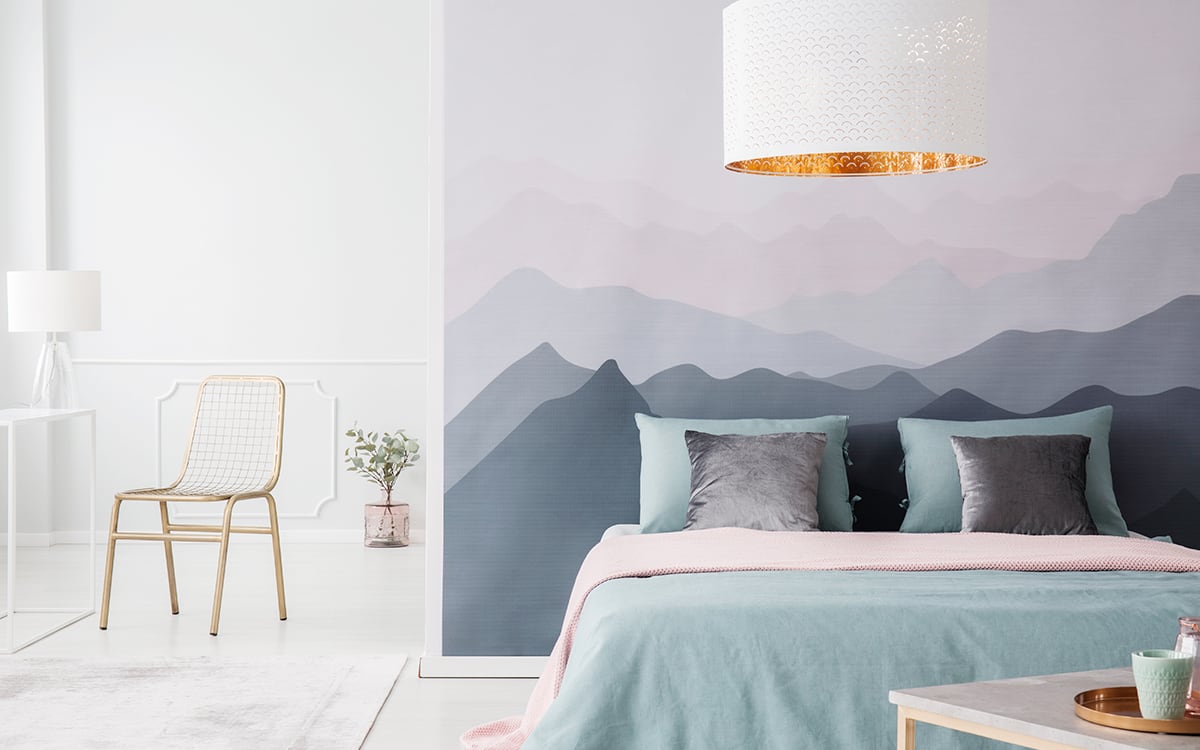
We probably don’t need to tell you that a) sleep is a fundamental component of a healthy lifestyle b) chances are you aren’t getting enough. “According to the Centers for Disease Control and Prevention, more than a third of American adults are not getting enough sleep on a regular basis,” says Terry Cralle, RN, MS, CPHQ and sleep wellness expert. “This epidemic of insufficient sleep negatively impacts everything from our health to our well-being, and even our quality of life.”
Just clocking enough time is enough of a challenge, but there are so many benefits to taking your sleep practices to the next level. If you’ve heard of “clean sleep” it’s probably thanks to wellness champion Gwyneth Paltrow — and she’s definitely on to something. According to Cralle, “Clean sleeping is about prioritizing sleep and committing to consistently getting the rest your mind and body require.” It’s more than a number; it’s understanding and practicing habits and behaviors that can improve sleep quality, ultimately helping you face the day refreshed, recharged and restored. It’s about good health, optimal functioning and peak performance. After all, with sufficient sleep we feel better, do better, eat better and look better.
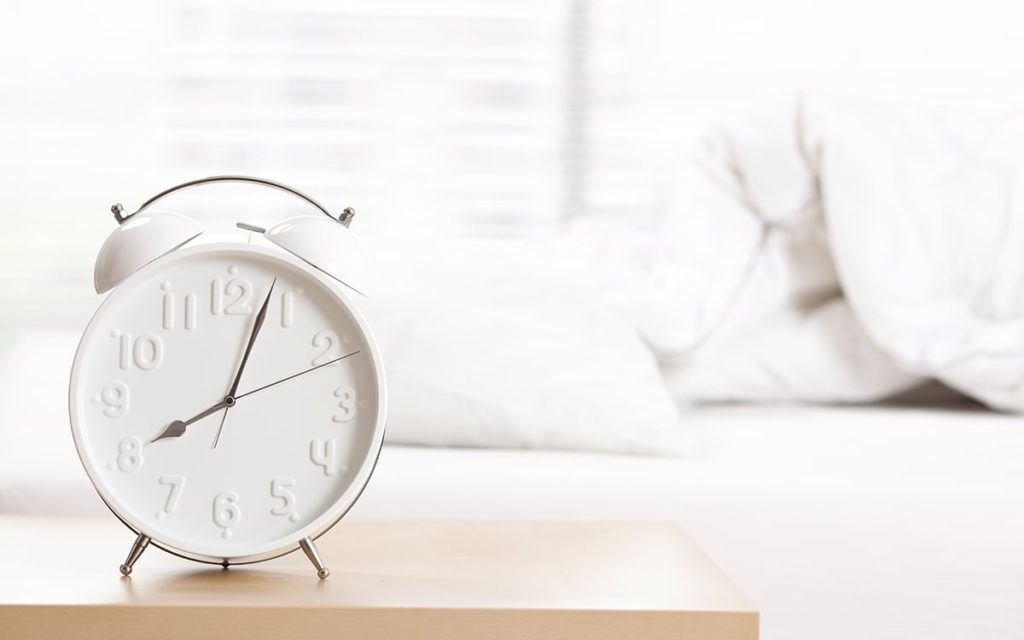
Strategies for Embracing Clean Sleep
Clean sleeping isn’t difficult to do — it just requires a better understanding of sleep and a realization of all of the benefits it provides. Healthy sleep habits are the cornerstone of clean sleeping and can easily be incorporated into daily life.
- Get sufficient sleep every night of the week. “Don’t skimp on sleep during the work week and oversleep on the weekends. Studies have shown that not all of the damage done from insufficient sleep can be undone with weekend ‘catch up’ sleep,” says Cralle. The majority of adults should get 7-9 hours of sleep each night.
- We thrive on routines. “Have a consistent bedtime and wake time,” says Cralle — and even adults need a bedtime ritual. “A sleep routine will help you relax and transition your body and mind from wake to sleep.” A warm shower or bath before bed is an easy way to start, according to Cralle.
- “Avoid caffeine after lunchtime and avoid alcohol close to bedtime,” Cralle advises. Try a piece of fruit to combat your afternoon slump instead.
- Unplug at night — at least 30 minutes before bedtime. “The blue light emitted from these devices suppresses melatonin, while the emails, news, political rants are alarming — and certainly not conducive to relaxation and sleep,” says Cralle.
- Don’t fall victim to bedtime procrastination. “While it’s easy to get caught up with your favorite shows or checking social media sites, it’s not worth losing sleep over (and losing out on the benefits of sufficient sleep),” says Cralle. Set a bedtime alarm to remind you when it’s time to turn in. Some phones will even let you set limits to the amount of time you can spend on certain apps, which can save you from that extended late-night Instagram dive.
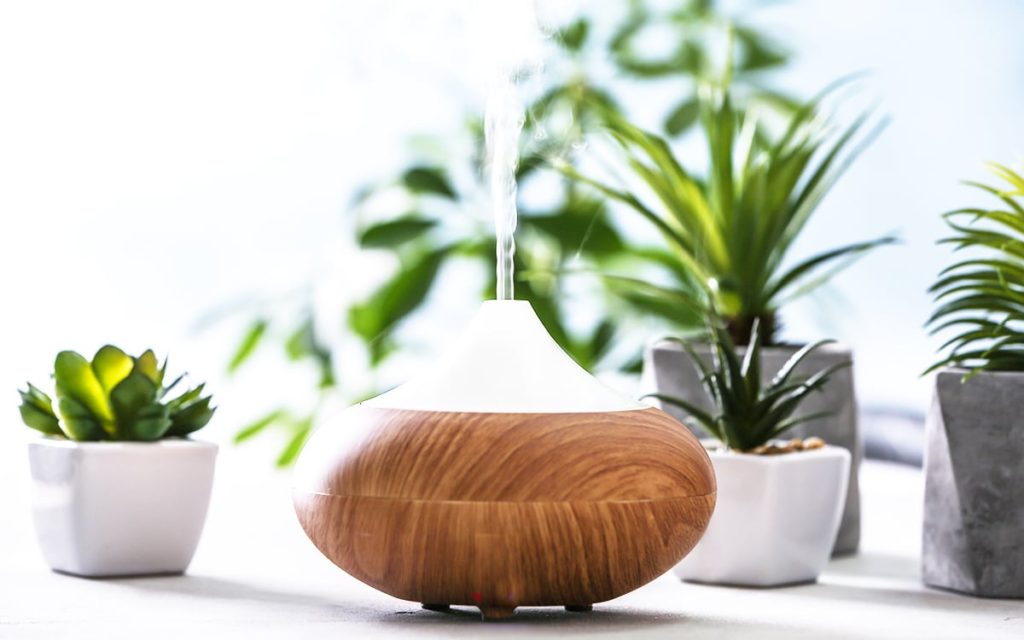
- A number of aromatherapy agents can help with relaxation and sleep, including lavender, vanilla, jasmine, chamomile, sandalwood, clary sage, rose and valerian.
- Make time for a nighttime beauty ritual. “Sleep is the time when your body repairs itself,” says Cralle, so don’t skip a night moisturizer (SKINLONGEVITY Sleeping Cream, we’re looking at you) — and don’t forget a quick foot rub.
- You know that sinking feeling when someone tells you that you look tired? Studies show that failing to get the sleep you need does indeed affect your appearance. “In research published in 2013, faces of sleep-deprived individuals were perceived as having paler skin, drooping eyelids, more wrinkles and fine lines, darker under eye circles and more swollen eyes,” says Cralle. Sleep will also help you age gracefully. “A study published in 2015 demonstrated that chronic poor sleep quality was associated with increased signs of aging as well as lower satisfaction with appearance,” says Cralle.
Create a Relaxing Bedroom Environment
It’s no secret that stress can cause wrinkles and acne, and it can prevent us from having a proper night sleep. “Having a relaxing environment has been proven to improve sleep quality, and therefore lower stress levels. Removing electronic devices and using a lavender spray on your pillows are both quality ways to de-stress before going to bed,” says Christina Heiser of Saatva.
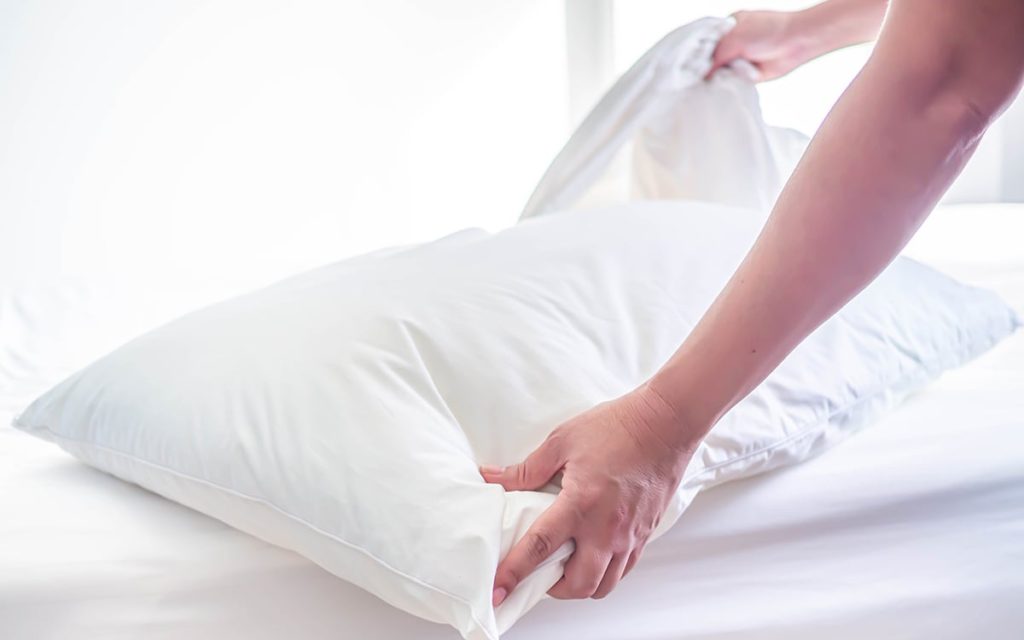
Change Pillowcases Regularly
“Other than being hygienic, it’s important to swap and clean pillowcases every one or two weeks to prevent overnight acne,” says Heiser, as dirt and oil collect on the fabric on a nightly basis. Having clean sheets and pillowcases has also been proven to improve sleep quality and duration.
Use a Humidifier
“For those who live in a dry climate, our skin can easily dry and crack overnight,” says Heiser. Adding a humidifier helps keep skin healthy while we sleep.
Sleep on Your Back
For side sleepers and stomach sleepers, pressing faces to the pillow can cause wrinkles over time. “Our skin loses collagen as we get older, so when we push our face against a pillow, the wrinkles that form won’t disappear as quickly as they used to. Many people praise silk pillowcases for preventing facial wrinkles, though this isn’t scientifically proven,” says Heiser.
In short, clean sleeping is about fully acknowledging and embracing the biological need for sleep. “It’s about taking sleep health seriously and committing to getting the rest your mind and body require for well-being and optimal performance,” says Cralle. And that’s something we can all get behind.


